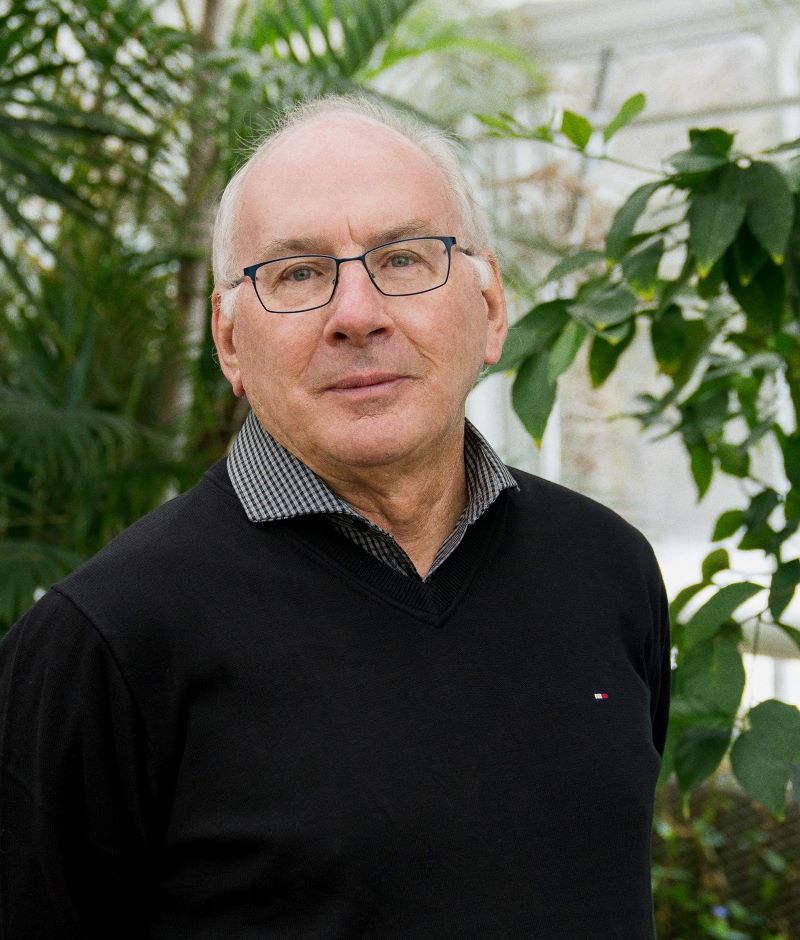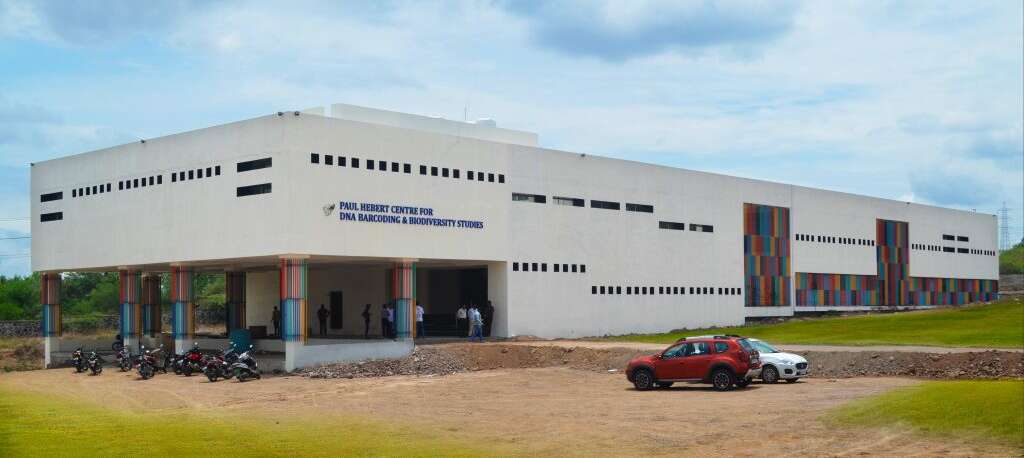The Paul Hebert Centre for DNA Barcoding and Biodiversity Studies (PHCDBS) in India has opened a new campus to expand its role as the country’s central hub for DNA barcoding.
The new campus is named after University of Guelph professor Dr. Paul Hebert, who is often referred to as the “father” of DNA barcoding. It is situated at Dr. Babasaheb Ambedkar Marathwada University (BAMU) in Aurangabad, 340 kilometres northeast of Mumbai.
The 4,800-square-metre (52,000 sq ft) facility is modelled after U of G’s Centre for Biodiversity Genomics (CBG) which has become a global leader in developing DNA-based identification systems to catalogue and monitor multicellular life around the world.
DNA barcoding, an innovation conceived and developed by U of G researchers led by Hebert, uses short, standardized sections of an organism’s genome to identify species quickly, accurately and inexpensively. The approach and its derived technologies (eDNA, metabarcoding) are transforming the capacity to understand biodiversity.
Centre to analyze biological samples, provide training

The new centre is decorated with colourful DNA barcode motifs and features DNA sequencing laboratories, specimen repositories, a high-performance computing centre and spacious laboratories.
Staff at the centre will process and analyze biological samples, provide professional training, and foster collaborations across biodiversity-related disciplines.
They will also explore emerging social and ethical issues in biodiversity research, and investigate applications for industry and society across areas of human health, agriculture, and nature conservation.
Established in 2009, the PHCDBS was founded to build biodiversity knowledge and develop applications to sustain the natural systems on which all life depends, said PHCDBS director Dr. Gulab Khedkar.
“Our mission is to enrich the narrative of biodiversity through DNA barcoding, serving as a vibrant testament to the wonders of life on our planet,” he said.
A professor of molecular biology in BAMU’s Department of Zoology, Khedkar has devoted the past 15 years to establishing the PHCDBS as the central hub for India’s involvement in DNA barcoding technologies.
Dr. Hebert, a professor in the Department of Integrative Biology within the College of Biological Science as well as CEO of the International Barcode of Life (iBOL) consortium, said he’s thrilled about India’s impressive new core facility for DNA barcoding.
“I congratulate Dr. Khedkar for leading the expansion of this centre and thank the funding organizations that made this possible,” said Hebert.
“As the world’s most populous nation, India provides a tremendous opportunity to lead the adjustments required for humanity to live in harmony with nature by 2050, the greatest challenge of our times.”
